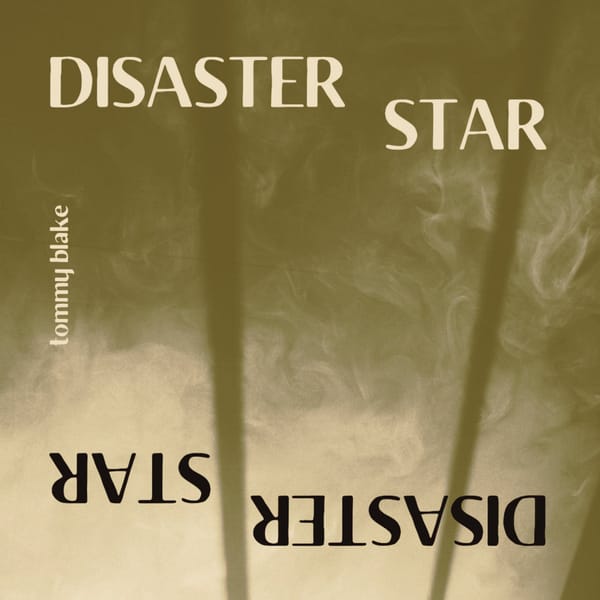Where Grievance, Girlhood, and Goddesses Intersect
by Blair Vandehey
Trista Mateer’s Myth and Magick series breathes life into the goddesses of the Greek mythological canon. So far, Mateer has given Aphrodite and Artemis space to tell their own stories, the former revolting against her past objectification (and embracing thesexuality she decides for herself) and the latter rediscovering the power of a woman untamed. However, Mateer recognizes that not every goddess has the luxury of reclaiming what is lost; some have to rise from the ashes altogether. There is no goddess that must do so more than the Persephone, who had her fate decided at the hands of another. With bittersweet duality that defines Persephone Made Me Do It, Mateer tells readers the untold story of Persephone’s painfully relatable journey of survival, growing up, and learning to play – and win – the hand that she was dealt.
Each book in Myth and Magick is structured with seven parts: one part for the goddess and the poet to air her grievances, one part each for their lamentations, one part for each woman’s journey to reclaim what she has lost, and the final word of the goddess who has not been able to speak for herself, her story having been written by those who have not braved what she has throughout all of history. In “goddess” sections, Mateer assumes the persona of Persephone and tells the untold side of her story.

Flipping between Persephone and herself highlights Mateer’s trademarks as a feminist poet: her ability to empathetically capture an authentic trauma survivor’s experience and protest the age-old institution of patriarchy that allows gender-based violences to go unpunished. Mateer’s Persephone recounts how unsuspecting she was when she was kidnapped by Hades, how he tricked her into eating the pomegranate that bound her to him against her will, and how she comes to learn the only choice is to move forward. As the sections flip back and forth between the two women, readers come to realize how similar Mateer’s experience with sexual assault is to the goddess’ story despite the thousands of years between the two events. Aside from making the survivor’s experience visible with great compassion, she implicitly reveals and criticizes the patriarchy’s long- standing, toxic dominance that has enabled abusers throughout the ages.
Duality appears everywhere throughout Persephone Made Me Do It, not just its structuring. Both Persephone’s and Mateer’s stories are dripping with fluidity, which enhances the difficult push-and-pull nature of the internal struggles they face. In one poem, Mateer cries, “I hate being seen / I need to be seen.” The lines are two sides of the same coin, rawly encompassing her stories of trauma survival and growing up; at the same time Mateer feels she needs to let the world know what her abuser did to her, shesimultaneously finds herself wanting to never speak of it again. Mateer feels she must create something of herself as she enters adulthood, she also wishes to run back into the arms of her mother and forget our world’s expectation of accomplishment altogether.
Unlike the previous Myth and Magick books, both in which Mateer and her goddesses make triumphant comebacks, Persephone Made Me Do It embraces the bittersweet reality of acceptance. One of the centerpieces of the collection is how the two women grapple with the irreversible departure from girlhood to womanhood. Growing pains are not exclusive to any one person; we have all experienced the emotional journey of growing and changing. A number of poets have already written beautiful works on growing up, but the twist and turns one faces on the way are especially resonant in Mateer’s work. However, considering that both women did not get to experience this transition naturally, having had experiences that expedited it. Even amongst the other Myth and Magick works, Persephone Made Me Do It is set apart; the work ends in a surprisingly simple fashion with one final ode to who Mateer and Persephone used to be, “I love you. / And I miss you. / And I will be missing you forever, girl.” Rather than concluding with a grandiose declaration of reclamation or a saccharine promise to rediscover oneself, this tale ends with quiet acceptance. Still, while our author recognizes that there are some instances where what is lost is forever lost, Persephone and Mateer don’t forget to show readers the silver lining, reminding us that the voices they have each gained will give them strength to face their futures.
Myth and Magick has a unique place in my heart as a contemporary woman, especially the deeply resonant and bittersweet coming-of-age tale told in Persephone Made Me Do It. Mateer has not yet announced the series’ fourth book, but there are still many goddesses who have yet to raise their voice and many stories still waiting to be told.
Blair E. Vandehey is an Appleton-based writer, daydreamer, and lover of all things pop culture. She is currently working towards a degree in Creative Writing at Lawrence University.



